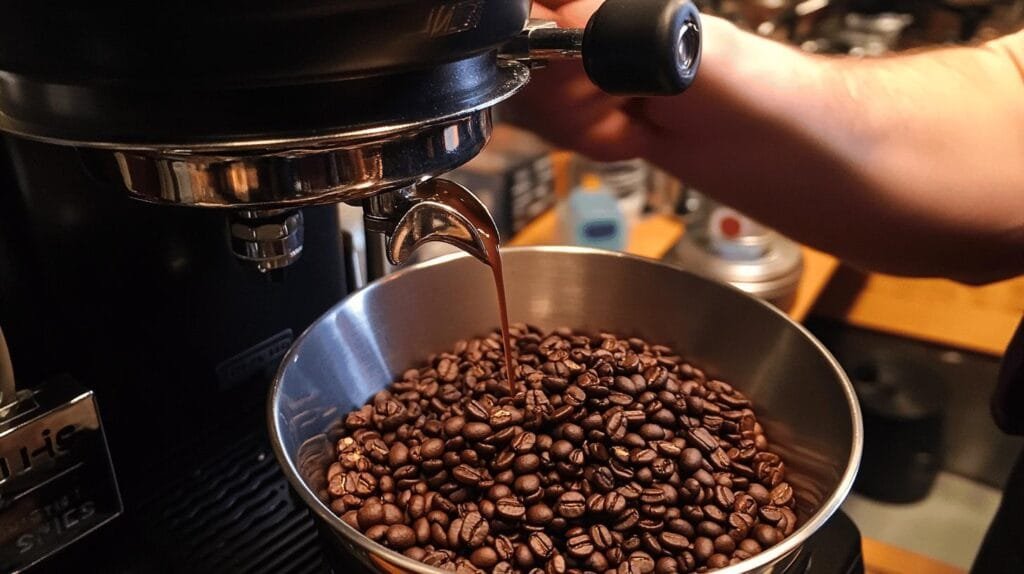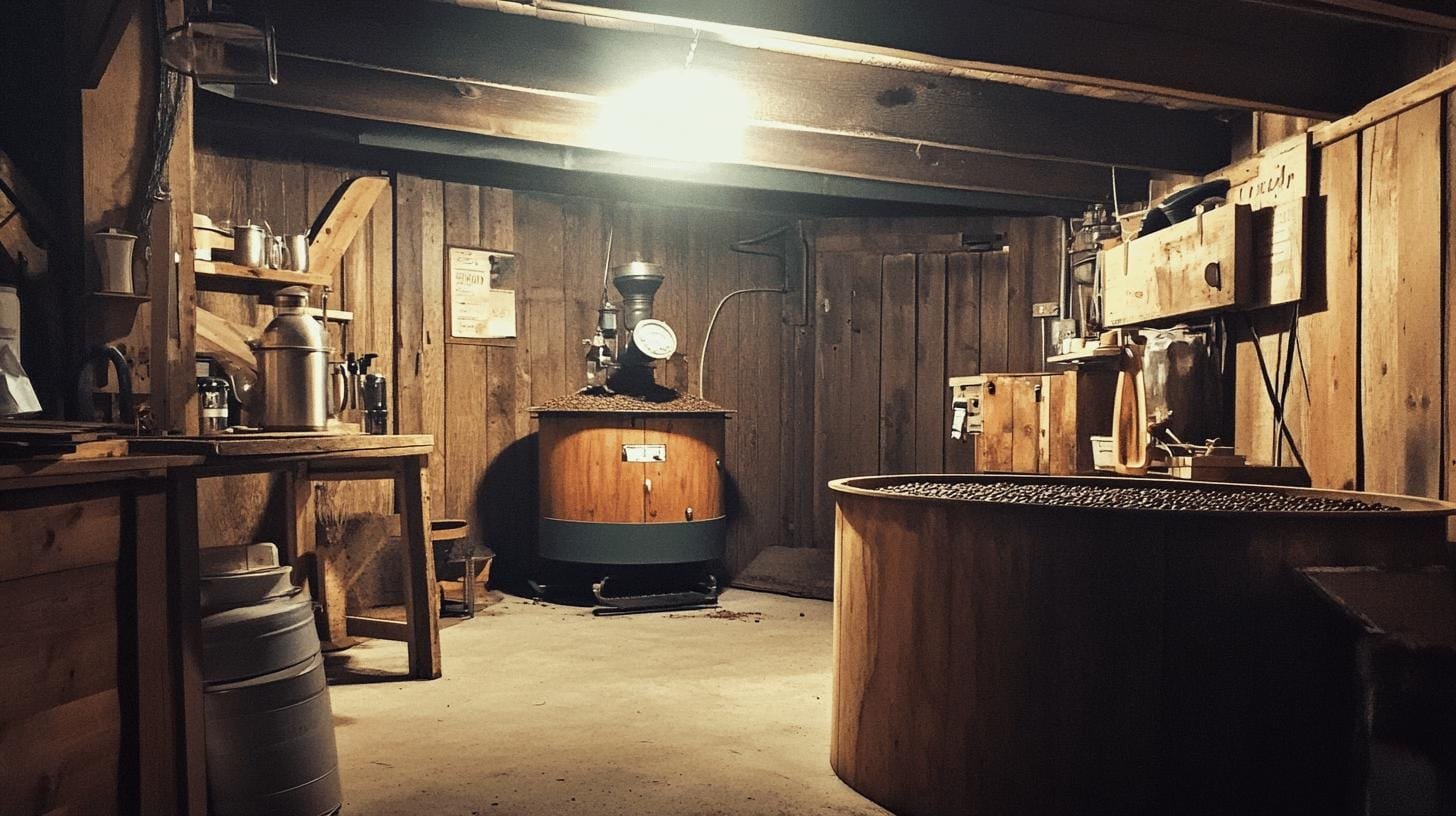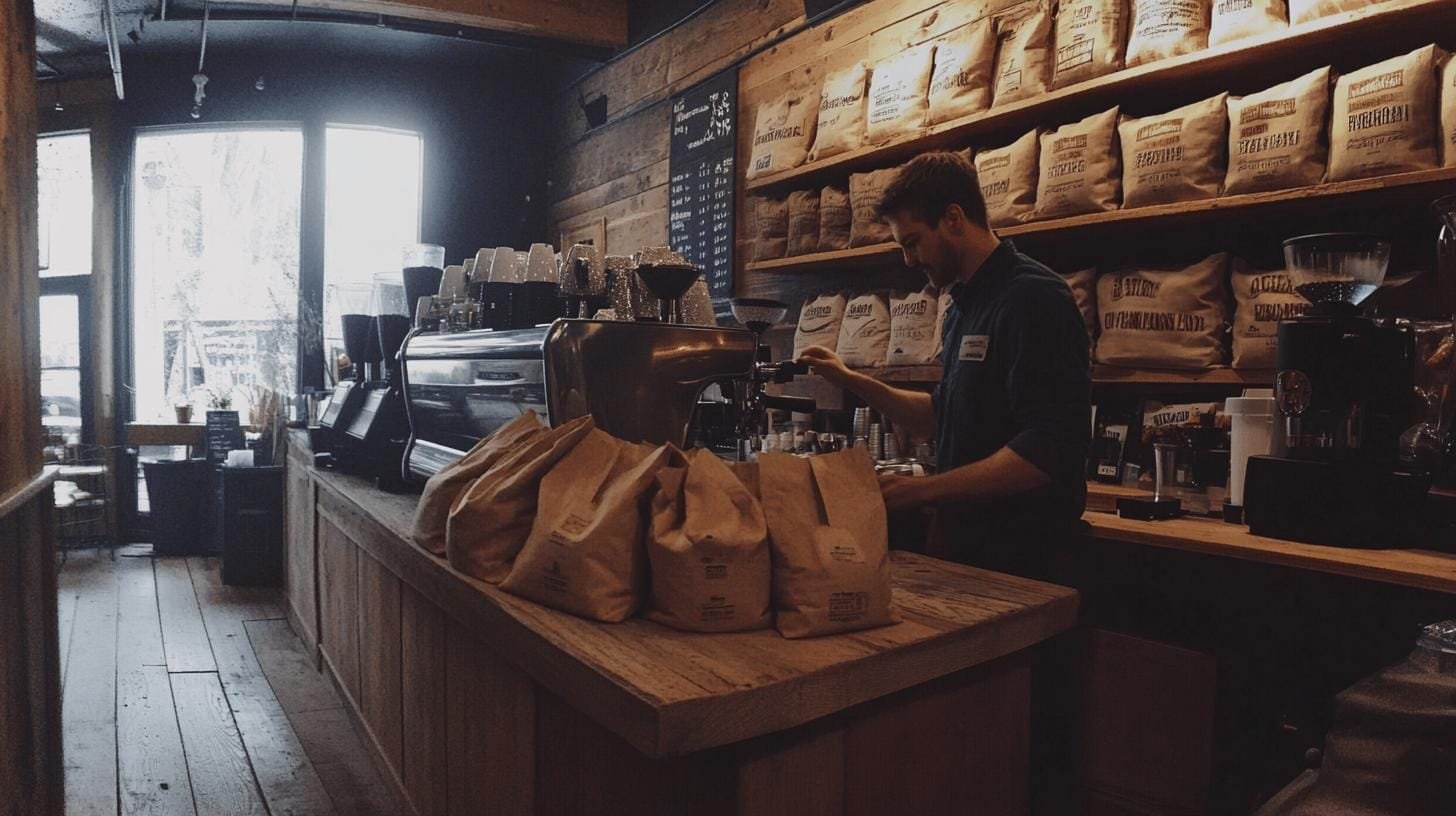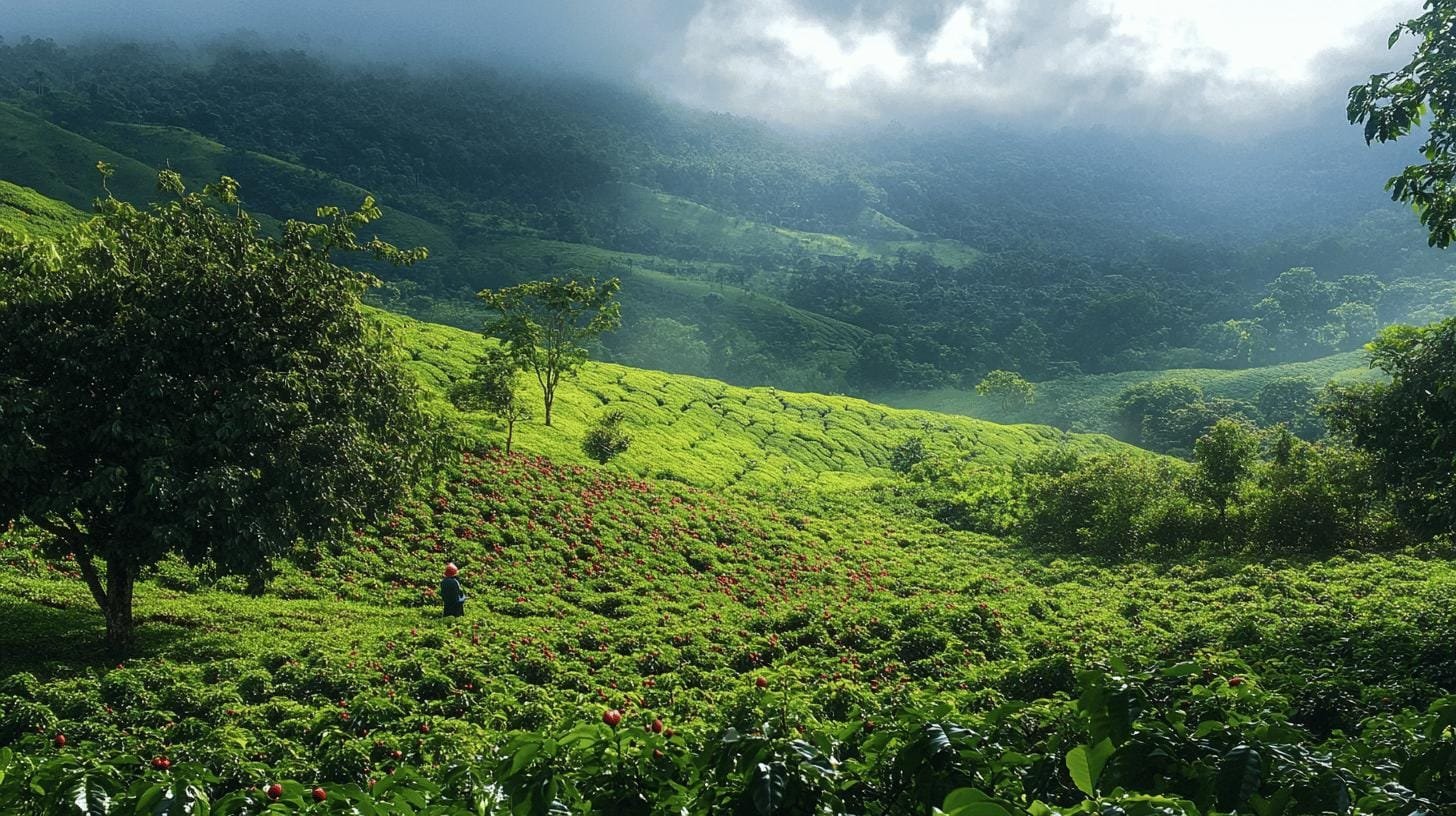
Emerging Approaches Redefining Craft-Focused Customer Experiences
Craft-focused small businesses have always relied on care, precision, and sourcing to stand out. What’s changing now is how those values are shown, not just

Why settle for the ordinary when your daily brew can be extraordinary? Artisan coffee beans transform your cup of joe into a unique tasting experience, offering a spectrum of flavors far beyond the generic supermarket grind. These handcrafted gems are the epitome of quality, sourced from single-origin suppliers and roasted with precision to deliver unparalleled taste. This article delves into what sets artisan coffee apart, examining its quality, flavor diversity, and ethical production practices. Prepare to explore the world of artisan coffee and savor the distinctive flavors each cup promises.
Artisan coffee beans are unique due to their careful sourcing from single-origin suppliers. This results in distinct, unblended flavor profiles. Mainly Arabica beans, they are celebrated for their smooth, aromatic qualities. Coffee lovers appreciate these beans for their exceptional taste.
The quality of artisan coffee is linked to its origin and roasting process. These beans come from specific regions, absorbing local climate and soil features. This gives them flavors not found in mass-market blends. Small batch roasting at micro mills ensures detailed control over the process. This enhances the beans’ natural flavors, offering a smoother taste than large-scale operations. Freshness is key, with beans roasted near the shipping date and marked with a roast date. This ensures an optimal taste experience.
Benefits of choosing artisan coffee beans:

The roasting of artisan coffee beans relies on traditional methods. This involves balancing time, temperature, and technique to highlight the beans’ flavors and aromas. Unlike mass-produced coffees, these methods focus on enhancing quality and flavor. Expert roasters monitor the process closely to ensure even heating, avoiding issues like scorching. These traditional techniques produce coffee rich in flavor and smooth on the palate, setting artisan coffee apart from mass-produced varieties.
Small-batch roasting is key to artisan coffee’s precision and detail. Roasting small quantities allows roasters to control every step and make real-time adjustments. This method preserves and highlights each bean’s unique characteristics. It also lets roasters experiment with different profiles, catering to diverse tastes.
The distinct flavors of artisan coffee come from the climate and soil of the growing region. Each origin offers unique tasting notes, providing rich experiences for coffee enthusiasts. Local conditions give each coffee unique traits that set it apart.
Colombian coffee, especially from Tolima and Cauca, is renowned for vibrant flavors. Tolima offers caramel and red grape notes for a sweet, fruity experience. Cauca brings complexity with dark chocolate and grape hints for a richer taste.
Kenya’s Uteuzi-Jimbo coffee is known for lively, refreshing flavors. Its grapefruit and baked apple notes create a bright profile. Kenya’s high-altitude conditions contribute to its crisp flavor.
Ethiopian Guji coffee contrasts with delicate, sweet flavors, like honeysuckle and brown sugar. The Guji region’s unique terroir imparts these distinct traits, making it a top choice for aromatic cups.

Buying artisan coffee beans offers unique flavors and supports ethical practices. Consider online platforms and local coffee shops. Online shops provide convenience and a variety of beans from around the globe. They also often give detailed origin and roast date info for freshness. Local coffee shops that roast their beans support community businesses and guarantee fresher products. They offer personalized experiences with knowledgeable staff recommendations.
Experimenting with different brands and roasts helps discover personal preferences. Trying small bags from various sources reveals diverse tastes, helping find the perfect match.
Grinding fresh beans before brewing unlocks artisan coffee’s full flavor. Grinding releases aromatic oils and compounds essential to taste and aroma. To preserve flavors, store coffee in an airtight container, away from light and moisture. Proper storage keeps beans fresh and flavorful longer.
Experiment with brewing to find what suits your taste. Adjust factors like grind size and water temperature for exciting discoveries. Each brew is an opportunity to savor the unique characteristics of the beans.

Artisan coffee beans stand out due to ethical sourcing and sustainable methods. Certifications like Organic, Fair Trade, and Rainforest Alliance ensure these practices. They guarantee coffee is grown without harmful chemicals, fair wages for farmers, and biodiversity protection. This approach supports coffee-growing communities and appeals to environmentally conscious consumers.
Supporting ethical coffee impacts the environment and farmers’ livelihoods. Choosing certified artisan coffee beans supports sustainable agriculture and fair worker treatment. This commitment to ethics enhances coffee quality and fosters a fairer, sustainable global coffee industry.
In exploring artisan coffee beans, the journey has moved through their unique flavors, from Colombian caramel to Ethiopian honeysuckle.
The meticulous roasting process ensures balanced tastes, enhancing the experience of coffee lovers worldwide.
Purchasing options abound, both online and locally, offering opportunities to support small businesses. Experimentation with various roasting and brewing methods unlocks the beans’ full potential, making each cup a personal delight.
Ethical sourcing further allows consumers to indulge with a clear conscience, knowing their choices support sustainability. Embracing artisan coffee beans offers not just superior taste,
but also a mindful, balanced approach to coffee consumption.
Artisan coffee refers to coffee that is artfully crafted using traditional methods, focusing on quality, flavor, and freshness. It often involves single-origin beans and small-batch roasting.
Artisan coffee beans can be purchased online or from local coffee shops and roasters. Buying locally supports small businesses and provides a more personalized experience.
Arabica beans are considered the highest quality due to their smooth and aromatic flavor, commonly used by artisan roasters.
Popular artisan coffee brands include Messenger Coffee Co., The Roasterie, and Oddly Correct Coffee Bar, known for quality and unique flavor profiles.
Enhance flavor by grinding beans before brewing, storing them properly, and experimenting with various brewing methods like French press or pour-over.

Craft-focused small businesses have always relied on care, precision, and sourcing to stand out. What’s changing now is how those values are shown, not just

How can brands create a more balanced and memorable customer experience by blending artisanal product quality with thoughtful everyday rituals that keep people coming back?

Independent coffee shops have always been about more than caffeine—they’re hubs of creativity, connection, and care. As café culture continues to evolve, new trends are

Introduction Independent cafes win when they feel like the neighborhood’s living room and operate with the discipline of a great kitchen. Below is a quick

Discover how top specialty coffee brands create lasting loyalty through storytelling, sourcing, and community connection. Real tips from 6 industry experts.

Discover the ultimate showdown between two beloved coffee brewing methods: the French press and Chemex. Explore how each technique caters to distinct palates, with the French press delivering bold flavors and the Chemex presenting a bright, clean taste.

Unlock the secrets to brewing the perfect cup of coffee with our comprehensive guide on using a coffee scale. Discover how precise measurements enhance flavor and consistency while eliminating bitterness.

Discover how water temperature plays a vital role in brewing the perfect cup of coffee. This article delves into the ideal temperature range of 195°F to 205°F for optimal flavor extraction, enhancing the enjoyment of high-quality beans.

Discover the world of curated specialty coffee bundles, perfect for enthusiasts seeking quality and craftsmanship. This article explores the benefits of ethically sourced, small-batch beans from brands like Equipoise Coffee, offering diverse flavor profiles that elevate your brewing experience.